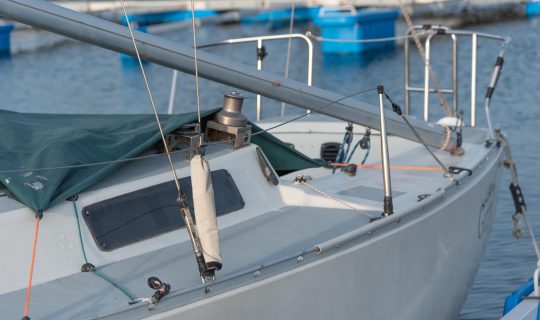Blog
BOAT CAPACITY ADVICE
on April 29, 2020
If you’re taking a group of friends and family out, follow these tips to make sure you don’t overload. Be Responsible…. Capacity Plates On Smaller Boats Boats measuring less than 20 feet and powered by a motor are required to carry a plate showing the manufacturer’s designed capacity limits. Some manufacturers also provide capacity plates on boats up to 26 feet in length. This plate includes the boat’s maximum capacity, usually in number of passengers […]
MARINE AND BOATING ACRONYMS
on April 22, 2020
Below is a list of acronyms used in the past. If there are other marine abbreviations you need an explanation for, or some you think we should include, email us and we’ll do our best to answer or add them. ACR: An automatic charge relay is a one-way gate for voltage that allows the second battery in a system to be charged when the motor is feeding the system via the alternator without having to select […]
MARINE SURVEYS – IT’S NOT ABOUT THE COST
on April 15, 2020
Don’t choose a surveyor on price alone. Of course you need to know up front what the cost of the survey will be, but it could be a case of “if you don’t pay now, you’ll pay later.” That bargain-basement-price survey could cost you in the long run should the surveyor miss some important fault on the boat. If problems are caught before inking the deal, you have the option of renegotiating the price or […]
BE ALARMED
on April 8, 2020
High-water alarms are installed on all boats built to its standards, for good reason: These simple devices typically use a switch to activate an alarm when water reaches a predetermined level and can save your boat. Statistics have shown that 69 % of boats sink while at their dock — a good reason to connect the sensor to the boat’s horn so others will know if your boat is taking on water. If your boat […]
USE YOUR TIME TO PERFORM MAINTENANCE
on April 1, 2020
Regardless of your boat’s size and systems, routine inspections and maintenance can alert you to potential problems. Changing engine oil, and checking fluid levels are the best way to keep your boat running smoothly. Even well maintained engines will show signs of age. Leaks from steering cables, drips from the last oil change, or fuel from leaky fittings can all find their way into the bilge. While we have some down time, why not put […]


